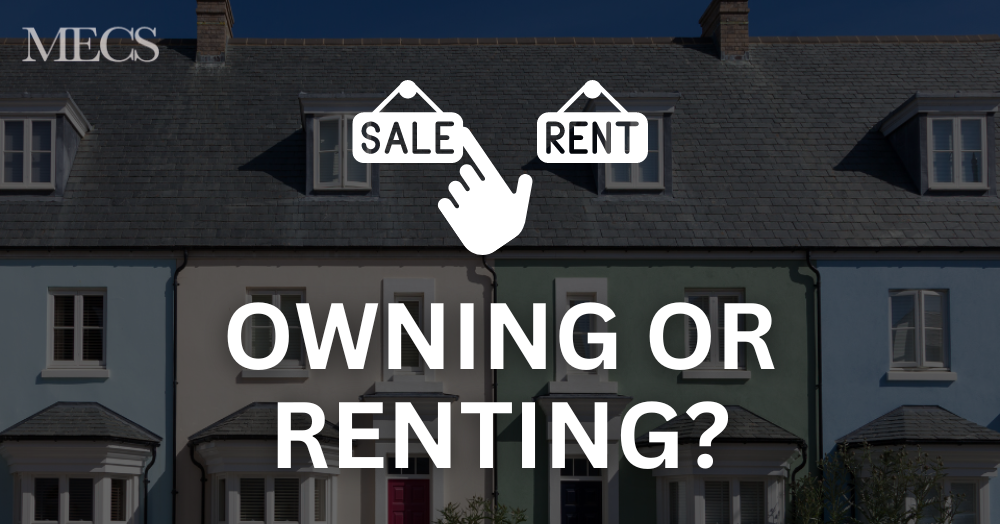One of the biggest questions we get as Estate agents is whether to rent or to buy. In this article, we will be discussing some of the Pros and Cons of both.
Renting a Home:
Pros:
1. Flexibility: Renting provides flexibility for individuals who may need to move frequently for work or other reasons. With a lease typically lasting only one year, it’s easier to pick up and move without the financial and legal burdens of selling a home.
2. Lower Upfront Costs: Renting a home typically requires a smaller upfront investment than buying. Renters often only need to pay the first month’s rent plus a security deposit. This can make it a more accessible option for those who don’t have the funds for a down payment on a home.
3. No Maintenance Costs: Renting absolves tenants of many maintenance and repair costs that are typically the responsibility of homeowners. When something breaks, it’s usually the landlord’s responsibility to fix it.
Cons:
1. No Equity: Renting a home doesn’t allow renters to build equity. This means that the money being spent on rent doesn’t contribute to building ownership or long-term financial stability.
2. Limited Control: Renters don’t have complete control over the property. They may not be able to make certain changes to the property without the landlord’s permission, and they may not be able to stay in the property beyond the terms of the lease.
3. Rent Increases: Landlords have the ability to increase rent after a lease is up. This means that renters may have to adjust their budget to accommodate the increase in rent or move to a new property.
Buying a Home:
Pros:
1. Equity: Buying a home allows homeowners to build equity. This means that the money spent on a mortgage payment contributes to ownership and long-term financial stability.
2. Control: Homeowners have complete control over the property. They can make changes to the property without needing permission from a landlord, and they can stay in the property for as long as they wish.
3. Stability: Homeownership provides stability. Homeowners don’t have to worry about landlords raising rent or terminating a lease.
Cons:
1. High Upfront Costs: Buying a home requires a significant upfront investment, including a down payment, closing costs, and other fees. This can make it difficult for some individuals to afford a home.
2. Maintenance Costs: Homeowners are responsible for all maintenance and repair costs associated with their property. This can be expensive, especially for major repairs like a new roof or plumbing issues.
3. Less Flexibility: Homeownership can be less flexible than renting. Selling a home can take time and may require significant effort and expense. This can make it difficult to move quickly, especially if there’s an unexpected change in circumstances.
In conclusion, both renting and buying a home have their advantages and disadvantages. The decision between the two ultimately comes down to personal preference, financial situation, and lifestyle goals. Whichever option you end up picking we can help find you the best property to fit your lifestyle and needs. Get in contact now!
0121 681 6327
info@mecsproperty.co.uk

